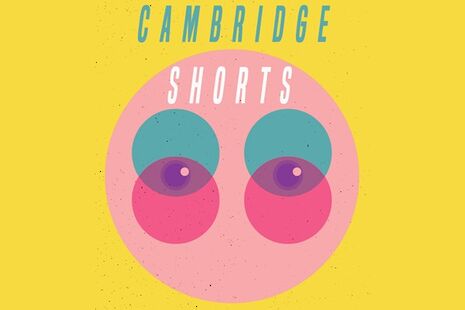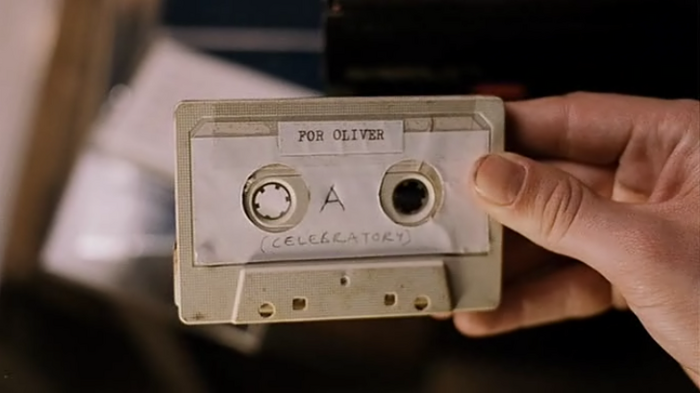Cambridge Shorts: flitting through the clippings
Returning to review this year’s evening of the finest works in cinematic brevity, Emma Lubega and Ada Barume discuss the short films on display

Once again, we find ourselves settled into our seats at the ADC ready for another night of Cambridge students’ best short films. Along with the predictably artsy crowds, we were eased in with deafening music and disturbing videos of sheep-shearing and dissection, creating an atmosphere more befitting of ARCSOC than an ADC late show.
“The evening proved an enjoyable one, with the shorts showing an impressive assortment of themes and concepts”
After the music had subsided and the smoke had cleared from Ania Magliano-Wright’s theatrical entrance, we felt more at home in the centre of Cambridge’s thespy heartland. As the new presenter, Ania was everything the evening needed, providing humour, self-deprecation, and inclusivity, all in a sharp suit.
Lucy Cole’s Chair was a great start to the evening, setting the tone with a funny, lighthearted, and ultimately relatable depiction of a typical Cambridge house party. Martha Cook’s portrayal of the timid outsider was perfectly executed. The film also featured good camerawork, and the attention to detail was not lost on the audience; laughs were elicited by touches such as the chair’s disappearing drink and the toilet paper credits. Considering the overall success of the concept, it is a shame it fell short in diversity, with the only non-white character being the blue chair, expertly voiced by Christof Epaminondas.
Up next was Monty, a standout short of the evening, showcasing how successful thinking outside the box can be. Presented as a mock trailer, complete with directors’ commentary, Noah Geelan and Jacob Blewett’s concept of ‘double-casting’ the character of Monty was novel and thoroughly enjoyable, procuring the loudest laughs of the night. The acting, costumes, and comedic timing worked together to deliver an impressive parody, playing off clichés which the whole audience instantly recognised.
Following two well-received comedic films, The Girl in the Woods (Emily Burgoyne) suffered somewhat from the lack of appropriate atmosphere in the room. The setting, camerawork, and music built a sense of eeriness, with an especially well-composed driving scene; however, the lack of narrative and slightly clichéd characterisation stunted the film’s ability to reach and maintain a genuine fear factor.
One Last Chance (Stephen Goss) provided a more introspective narrative exploring the hidden power of the frequently overlooked. The uninspiring setting and relatively simple plot were set off by the high quality of acting, with a subtly compelling performance from Chris Born as ‘The Everyman’. A few shots failed to adequately frame the actors, subsequently sidelining some of the characters, a shame considering the well-written, sincere dialogue.
Pondering A Wall by Johnny King delivered a similarly simple premise against which the imaginative writing and impressive voice work from Will Bishop was allowed to shine. Overall, the film lacked the energy felt at the beginning of the night, with the various visual and auditory elements seeming at times disconnected and lacking in a sense of cohesion.
Finally, we came to Kate Collins’ Some Flowers. Finishing a night of such high-quality film is no easy task, and unfortunately the technical glitches (which featured intermittently throughout the evening) hindered our ability to fully engage with the plot from the beginning. The film provided witty dialogue and two interesting ideas; however the inevitable restrictions of the short film format meant that the connection between these themes was not sufficiently explored, leading to a sense of detachment from the characters and events.
Ultimately, the evening proved an enjoyable one, with the shorts showing an impressive assortment of themes and concepts. Although some films experienced technical glitches, it was still easy to see the obvious talent and creativity of the cast and crew involved. Thanks partly to Ania’s presenting, the night felt much less exclusive in comparison to last year’s event. Nevertheless, Cambridge Shorts’ problem with diversity unfortunately persists, a shortcoming we hope to see tackled in the next showcasing of our students’ undoubtable filmmaking talent
 News / SU reluctantly registers controversial women’s soc18 December 2025
News / SU reluctantly registers controversial women’s soc18 December 2025 News / CUP announces funding scheme for under-represented academics19 December 2025
News / CUP announces funding scheme for under-represented academics19 December 2025 Features / Should I stay or should I go? Cambridge students and alumni reflect on how their memories stay with them15 December 2025
Features / Should I stay or should I go? Cambridge students and alumni reflect on how their memories stay with them15 December 2025 Fashion / The art of the formal outfit 18 December 2025
Fashion / The art of the formal outfit 18 December 2025 News / Dons warn PM about Vet School closure16 December 2025
News / Dons warn PM about Vet School closure16 December 2025










